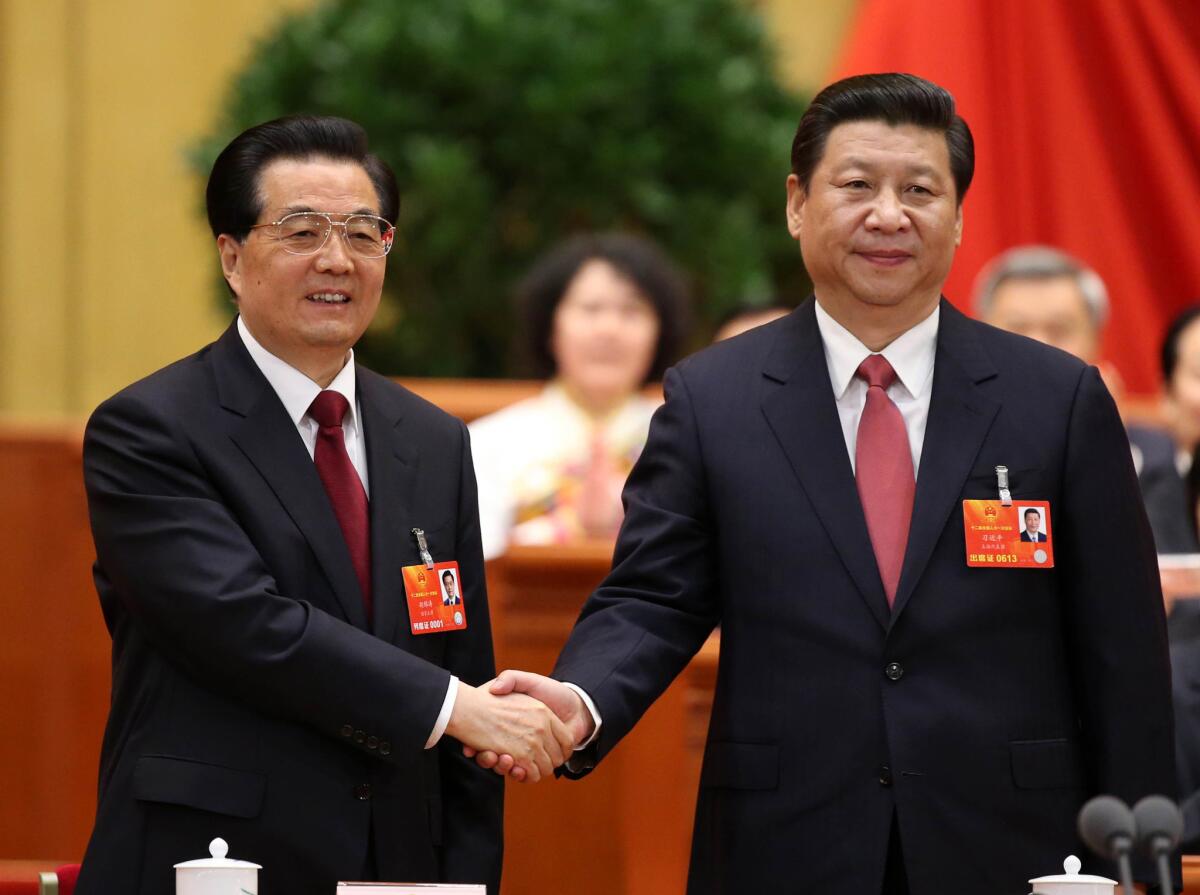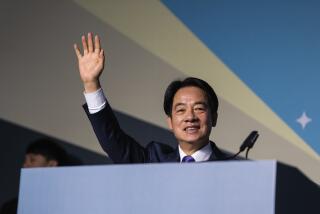China’s Xi Jinping formally assumes title of president

BEIJING -- Capping a highly choreographed transition of power, Xi Jinping formally assumed the Chinese presidency Thursday after a secret vote at the National People’s Congress.
The 59-year-old son of a former vice premier is the most successful of the many “princelings,” as they are called, who had been vying for power in the Chinese leadership.
Xi was elected with an enviable margin of 2,952 votes in favor to one against at the congress. There were three abstentions.
Under the Chinese political system, there is no formal inauguration. After the vote was announced in Beijing’s Great Hall of the People, Xi bowed to the deputies and shook hands with his predecessor, Hu Jintao. Hu is retiring from public office and also handed over his title of commander of the military.
One relative surprise during the session was the selection of a more liberal figure, Li Yuanchao, as vice president by a 2,839-80 vote. By the standards of the rubber-stamp legislature, the vote could be considered a contested one. Li, a protege of Hu’s, engineered some administrative reforms during his tenure as Communist Party secretary in Jiangsu province.
In a break with past practice, Li is not a member of the party Politburo’s seven-member standing committee, so his actual power might be limited.
The Chinese government is subservient to the Communist Party, so in fact the votes Thursday mostly confirmed that power alignment decreed at November’s 18thParty congress.
Many Chinese appeared apathetic or cynical about the transition. On the Sina Weibo website, microbloggers compared the process to the secretive selection of the new pope by the Vatican’s College of Cardinals.
“We only found out who was the new pope today, but we knew who would be China’s president years ago,’’ grumbled one critic.
Within the Communist Party, advocates of political reform -- or inter-party democracy, as it is called -- have been unhappy with early indications that the new Chinese leadership will stay the course.
“I can’t say I’m disappointed because I didn’t have much hope to begin with,’’ said a dejected Zhang Ming, a political scientist at Beijing’s People’s University. Although the new leadership has promised to crack down on corruption and streamline the Chinese bureaucracy, he said, “it is not possible to have real administrative reform without political reform.”
ALSO:
Dead pigs by the thousands float down Chinese river
U.N. report raises questions about Gaza infant’s death
Roman Catholic Church feels Europe slipping from its hands
More to Read
Start your day right
Sign up for Essential California for news, features and recommendations from the L.A. Times and beyond in your inbox six days a week.
You may occasionally receive promotional content from the Los Angeles Times.





